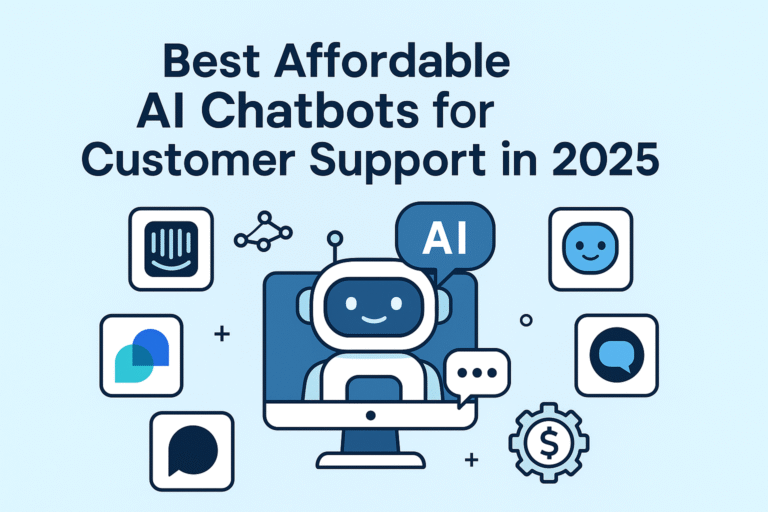In 2024, a robust Learning Management System (LMS) is essential for organizations, schools, and businesses that want to manage, track, and deliver educational content effectively. With a wide variety of LMS options available, it can be overwhelming to find the right one for your specific needs. Whether you are looking for features like gamification, mobile compatibility, or advanced reporting, this guide compares the top LMS platforms to help you make an informed decision.
Top 10 Best Learning Management Systems for 2024
1. Moodle
- Overview: Moodle is an open-source LMS that offers flexibility and customization, making it a popular choice for educational institutions.
- Key Features: Course creation, gamification, mobile compatibility, comprehensive reporting.
- Pros:
- Open-source and free to use
- Highly customizable and flexible
- Large community and support
- Cons:
- Steeper learning curve for beginners
- Requires technical knowledge for setup
- Pricing: Free (with optional paid hosting plans)
2. Canvas by Instructure
- Overview: Canvas is a cloud-based LMS known for its ease of use and intuitive interface.
- Key Features: Multimedia support, mobile app, grading and feedback tools, integration with third-party apps.
- Pros:
- User-friendly interface
- Robust features for both instructors and students
- Extensive third-party integrations
- Cons:
- Higher pricing for advanced features
- Limited customization without coding
- Pricing: Contact for pricing (typically subscription-based)
3. Blackboard
- Overview: Blackboard is one of the most established LMS platforms, ideal for large institutions and organizations.
- Key Features: Course management, virtual classrooms, gradebook, mobile app.
- Pros:
- Comprehensive learning management features
- Well-established platform with strong customer support
- Integrated video conferencing options
- Cons:
- Expensive for smaller organizations
- The user interface can feel outdated
- Pricing: Contact for pricing
4. Schoology
- Overview: Schoology offers an engaging and interactive learning experience, with a strong focus on social learning.
- Key Features: Course creation, assessments, collaborative tools, integration with other educational tools.
- Pros:
- Easy to use and set up
- Strong collaboration tools
- Integration with Google Drive and other tools
- Cons:
- Limited customization options
- Some advanced features only available in higher-tier plans
- Pricing: Free basic plan; paid plans for additional features
5. TalentLMS
- Overview: TalentLMS is a cloud-based, user-friendly LMS designed for businesses to train employees.
- Key Features: Course management, SCORM support, gamification, custom branding.
- Pros:
- Affordable pricing for small to mid-sized businesses
- Easy-to-use interface
- Highly customizable and scalable
- Cons:
- Limited support for advanced learning needs
- Less suitable for large-scale educational institutions
- Pricing: Starts at $59/month
6. SAP Litmos
- Overview: SAP Litmos is a corporate-focused LMS offering a wide range of features for employee training and compliance.
- Key Features: Learning paths, automated workflows, mobile compatibility, extensive reporting.
- Pros:
- Scalable and suitable for large enterprises
- Integration with SAP’s enterprise tools
- Strong reporting and analytics
- Cons:
- Expensive for small businesses
- Some users report a steep learning curve
- Pricing: Contact for pricing
7. Docebo
- Overview: Docebo is an AI-powered LMS that focuses on enhancing learning experiences through automation and personalized learning.
- Key Features: Artificial intelligence, social learning, content curation, mobile app.
- Pros:
- AI-driven personalized learning
- Easy to use and intuitive interface
- Strong social learning capabilities
- Cons:
- Higher cost for premium features
- Limited reporting in the basic plan
- Pricing: Starts at $3 per user/month
8. LearnDash
- Overview: LearnDash is a popular LMS plugin for WordPress, perfect for those looking to create online courses.
- Key Features: Course builder, quizzes, certificates, integration with WordPress.
- Pros:
- Seamless integration with WordPress
- Powerful course creation tools
- Advanced features like certificates and badges
- Cons:
- Requires WordPress hosting
- Somewhat complex for beginners
- Pricing: Starts at $199/year
9. Teachable
- Overview: Teachable is an online course creation platform perfect for creators who want to monetize their courses.
- Key Features: Course creation tools, payment gateway, student analytics, customization options.
- Pros:
- Easy to use and set up
- Integrated payment processing
- Offers built-in marketing tools
- Cons:
- Limited customization compared to other platforms
- Transaction fees on some plans
- Pricing: Starts at $29/month
10. Google Classroom
- Overview: Google Classroom is a free, cloud-based LMS for educators and students to collaborate and manage coursework.
- Key Features: Assignments, grading, integration with Google Drive, collaborative tools.
- Pros:
- Completely free to use
- Easy integration with other Google tools
- Ideal for small schools and classrooms
- Cons:
- Limited advanced features
- Best suited for smaller groups
- Pricing: Free
Conclusion
Choosing the right Learning Management System is crucial for creating a productive learning environment, whether for educational institutions or corporate training. The options above are some of the best LMS platforms for 2024, each offering a unique set of features to cater to different needs. Consider your specific requirements—such as budget, scalability, and feature set—when selecting the right LMS for you.








